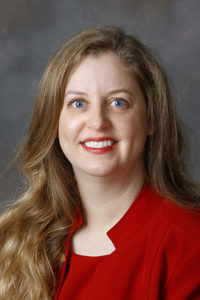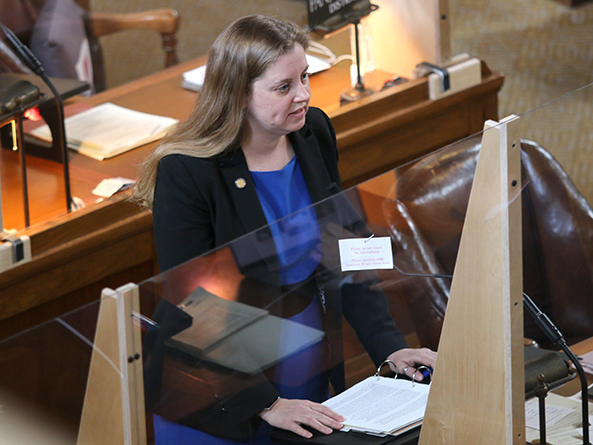Expanded child care assistance advances
More Nebraskans would be eligible for subsidized child care assistance under a bill advanced from general file April 20.

LB485, introduced by Bennington Sen. Wendy DeBoer, would increase the income eligibility limit of the Child Care Subsidy program from 130 percent of the federal poverty level to 185 percent. The bill also would increase transitional child care income eligibility from 185 percent of FPL to 200 percent.
DeBoer said the bill would help families still reeling from the COVID-19 pandemic and lessen the “cliff effect” that occurs when a pay raise causes an individual receiving subsidized child care to lose that benefit.
“The cost [of child care] is tremendous. It’s a very big disincentive to work,” DeBoer said. “Our economy will not thrive without workers and our workers cannot work without child care.”
The bill’s expanded eligibility would be paid for from existing federal Child Care and Development Block Grant funds.
Omaha Sen. Tony Vargas supported the bill, saying affordable child care is critical for families that need two sources of income.
“Many working families are not in a position where we can voluntarily choose to have a parent leave the workplace to stay home with the kids,” he said. “Nebraska has an opportunity to make sure that we’re getting back in competition with states like Colorado and Kansas, both of which have adopted the 185-percent threshold.”
Also in support was Gothenburg Sen. Matt Williams. Nebraska businesses struggle to find available workers, he said, in large part because lower-wage workers cannot afford child care.
“What we’re doing with [LB]485 is really creating additional workforce for our businesses across the state,” Williams said.
Sen. Dave Murman of Glenvil opposed the bill. Children are better off when raised by their parents, he said, and the bill would cause more parents to put their children in day care.
“Time together is good for the mental health of both children and parents and benefits society,” Murman said. “This is not to say that children are not valued in day care, but no one can totally replace a loving and caring father and mother.”
Sen. Steve Erdman of Bayard also opposed the bill. Future lawmakers would find it difficult to take away benefits once federal funding runs out, he said.
A Health and Human Services Committee amendment would end expanded eligibility for both programs after the 2023-24 fiscal year. The proposal also requires that the state Department of Health and Human Services collaborate with a private nonprofit organization to evaluate the proposed eligibility changes and file a report with the Legislature by Dec. 15, 2023.
Lawmakers adopted the amendment on a 42-0 vote.
DeBoer offered an amendment, adopted 40-0, that explicitly would prohibit using state general funds to pay for expanded child care eligibility under the bill.
Senators then advanced LB485 to select file on a vote of 31-7.


